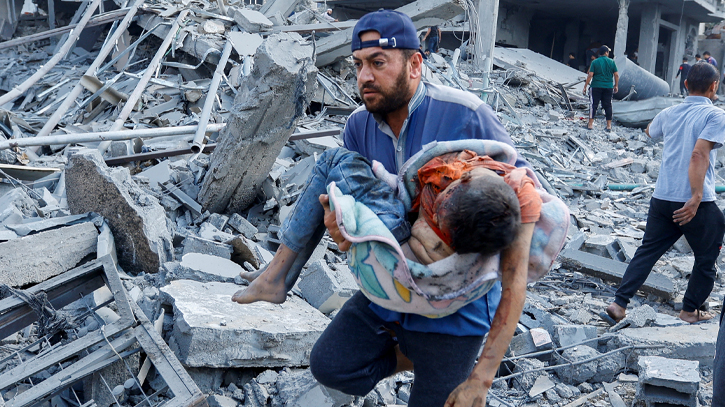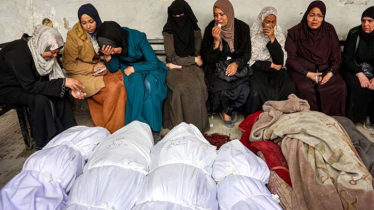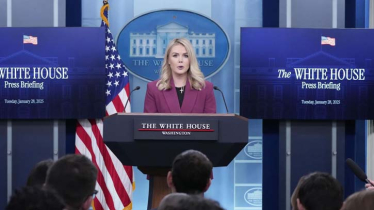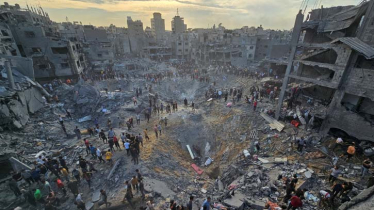
Children of Gaza: Caught in the crossfire of war. Photo: Reuters
The international community must put pressure on Israel to allow humanitarian aid into Gaza, or it will become an accomplice to starving its population, Belgium's Development Minister Caroline Gennez said on Tuesday (20 March).
The international community has to stay firm and has to make sure that Israel allows more humanitarian aid to get in. If not, we are all accomplices. What we are witnessing is starvation in massive numbers in a man-made catastrophe., Ms Gennez alongside the EU Commissioner for Crisis Management Janez Lenarcic in Brussels.
He added, the most effective way to get humanitarian aid into the Gaza Strip and people who might might die of hunger or thirst is to open more humanitarian access for more entry points, not only from Rafah or Kerem Shalom but also from Karni or Erez in the north, because in the north the situation is most dire.
Ms Gennez was speaking as a two-day yearly humanitarian conference co-organised by the EU Commission and Belgium, as current EU Council president, was finishing.
The EU pledged to spend an initial €7.7 billion ($8.39 billion) on humanitarian aid in 2024, less than last year despite soaring needs in Gaza.
The UN on Monday (18 March) warned that the possibility of a famine looms over northern Gaza as half the population of the area already faces “crisis levels of food insecurity or worse".
At least 27 people, most of them children, have starved to death in Gaza's hospitals, the enclave's health authorities say. An Oxfam report published this week states that there has been a 44 per cent decrease in aid that Israel has allowed into Gaza since January, the same month that the International Court of Justice issued a ruling calling for more relief to enter the embattled enclave.
Israel rejects such accusations. Cogat, Israel's co-ordination office for Palestinian territories, wrote on X on Tuesday that: "Israel is facilitating the delivery of unlimited quantities of humanitarian aid by air, land, and sea.
"This is despite Hamas’s objective to create an image of a humanitarian crisis."
In February, Belgium and Spain sent a letter to EU Commission President Ursula von der Leyen asking for the bloc to review its trade agreement with Israel due to suspicions of human rights violations.
Ms Gennez reaffirmed her government's position on Tuesday (19 March).
"When we are serious in promoting the human rights-based approach also in humanitarian issues and in conflict, it should be under review also when we have human rights clauses in association agreements," she said.
Discussions on the topic were launched between foreign affairs ministers at a meeting in Brussels on Monday (18 March).
But the EU's commissioner for foreign affairs, Josep Borrell, indicated there was strong opposition within the bloc, which is deeply divided over the Middle East conflict.
"You have to agree on a common position from member states, which was going to be very difficult to get," Mr Borrell said.
He said many countries suggested that instead of reviewing the trade agreement, they should invite the Israeli and Palestinian foreign ministers, Israel Katz and Riyad Al Maliki, to their next meeting.
The last time the EU invited Israeli and Palestinian foreign affairs ministers in January, meetings ended with Mr Borrell publicly criticising Mr Katz for bringing up a years-old plan for artificial islands off the coast of Gaza as a solution to the war.
Messenger/Mahbub








